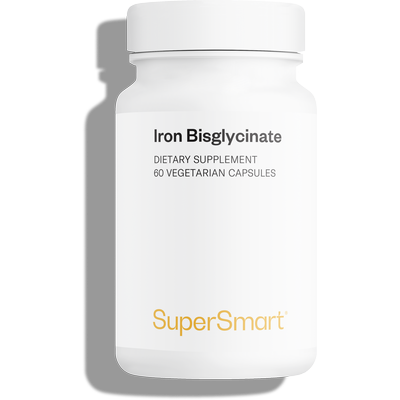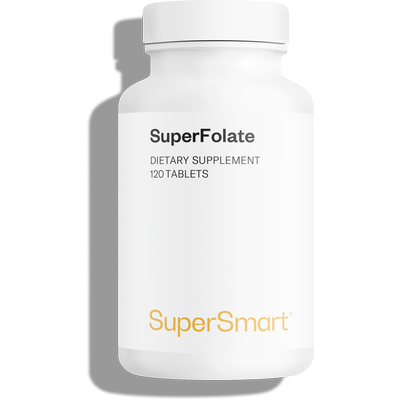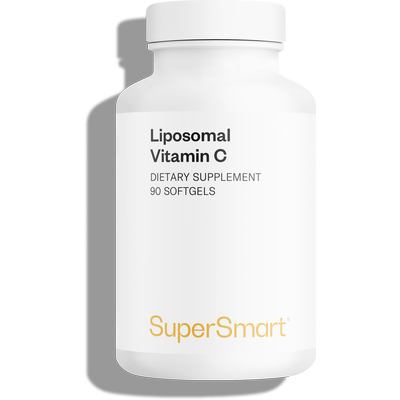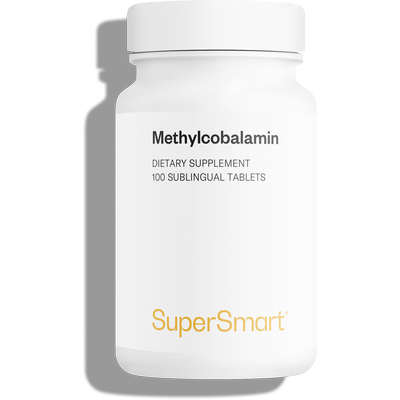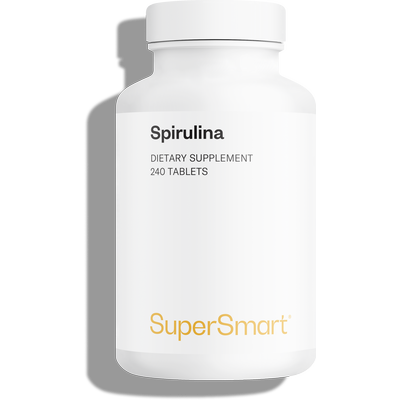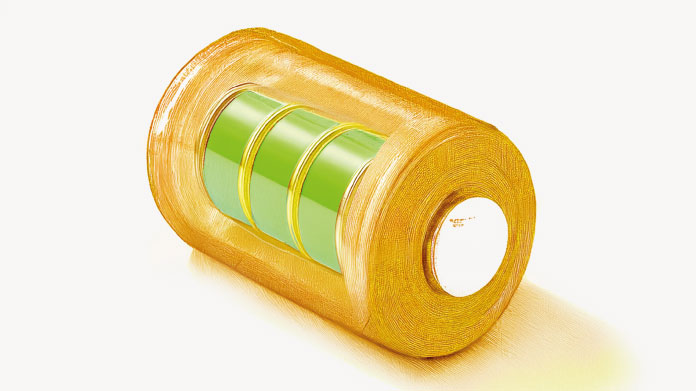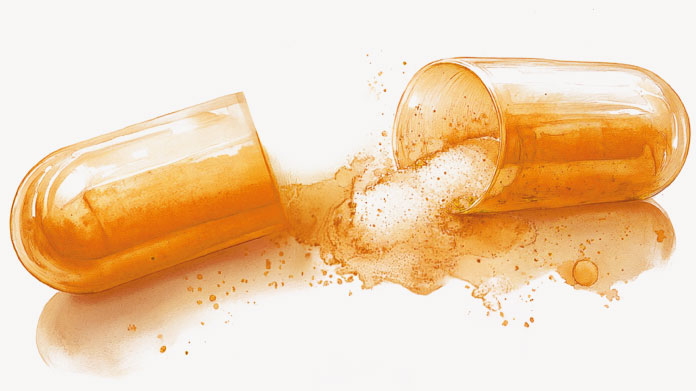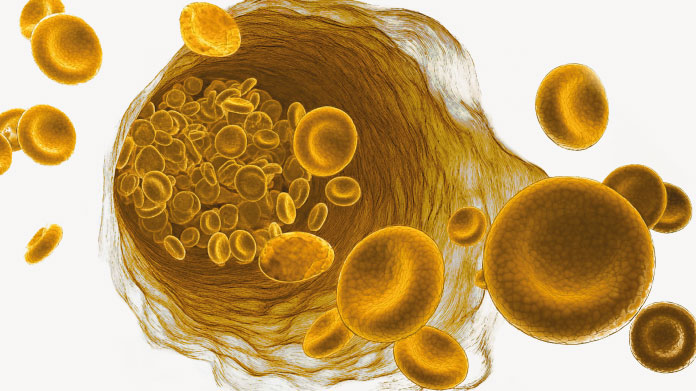Which foods should you avoid in the case of anaemia?
If you’re experiencing intense fatigue or looking paler than usual, you could well be suffering from anaemia. But don’t panic – here, we explore the foods you should avoid and other options for fighting anaemia.

What exactly is anaemia and what are its symptoms?
Anaemia is a medical condition characterised by a deficit of red blood cells or haemoglobin within them, leading to insufficient oxygen in the body.
The most common cause of anaemia is a a lack of iron or vitamin B12. Iron plays an essential role in the production of haemoglobin, a protein present in red blood cells, which transports oxygen from the lungs to all the body’s cells. B12 is essential for the production of DNA in the cells responsible for red blood cell formation.
Other factors, such as chronic diseases, genetic disorders or significant blood loss, can all cause anaemia.
Symptoms vary but usually include fatigue, weakness and pallor, as well as breathlessness, dizziness and a rapid or irregular heart rate. In more severe cases, anaemia can also cause chest pains, headaches and difficulty concentrating.
If you’re experiencing any such symptoms, it’s important to consult a health professional. He or she will be able to give you a precise diagnosis and recommend the appropriate treatment, which can range from dietary changes to supplementation with iron or vitamins, and even a blood transfusion in the most serious cases.
What types of iron are found in the diet?
First and foremost, we need to distinguish between the two types of iron present in our diet: haem and non-haem.
Haem iron is associated with proteins such as haemoglobin and is only found in animal-source foods. It’s the form most easily-absorbed by the body, with an absorption rate of between 15% and 35%(1).
Non-haem iron is found in a wide range of foods both animal- and plant-source. However, only 2%-20% of non-haem iron is absorbed by the body (2).
Which foods should be avoided in the case of anaemia?
Nutrition is hugely important in treating anaemia, so it’s essential to know which foods can hinder the recovery process.
To make this easier, we’ve listed the foods below which are best avoided:
Foods high in calcium when eaten alongside those high in iron: calcium is a mineral that can impede the body’s ability to process iron when the two are ingested at the same time. Studies have shown that consuming a meal containing 300mg–600mg of calcium can actually reduce iron absorption by 40%-50% (3-4).
Anaemic individuals should therefore take particular care when eating a meal containing calcium-rich foods such as cheese, milk and yogurt as well as sardines and tofu. These foods can, however, be eaten between meals. .
Foods with a high tannin content, when also eating iron-rich foods: ubiquitous in our daily diet, in tea, coffee, wine and dark chocolate for example, tannins are polyphenols which also interfere with the body’s iron absorption, thus reducing its bioavailability(5).
Research suggests that regular consumption of tannins has no long-term effects on iron levels as part of a healthy diet (6). But it’s advisable to avoid consuming tannin-rich foods close to meals in order to optimise iron uptake (7).
It should also be noted that tannins mainly affect non-haem iron from plant sources, rather than animal-source haem iron (8).
It’s also best to limit your intake of phytate-rich foods. Naturally-present in seeds, phytates are a form of phosphorus found in almost all edible plants such as grains, oilseeds and pulses including lentils, beans, chickpeas and soya.
Consuming phytates inhibits the bioavailability of iron in the diet. One study showed that 5mg-10mg of phytate phosphorus added to wheat bread containing 3mg of iron halved the absorption of that iron (9).
Which foods should you focus on if you have anaemia?
Combatting anaemia also means following a diet that prioritises certain foods.
Iron-rich foods include offal, such as black pudding (22mg/100g), pig’s liver (18mg/100g) and lamb kidneys (12.2mg /100g), as well as red meat in general.
Bear in mind though, that consuming too much red meat is not recommended, as it can increase the risk of cardiovascular disease and some types of cancer (10).
It’s therefore best to vary your iron sources, by eating fish such as raw anchovies (5.1mg), sardines in olive oil (3.3mg) or raw sea bass (2.2 mg). Other options include seafood such as octopus (2.32mg/100 g) or mussels (6.7mg/100 g).
It’s also a good idea to include foods like sea lettuce (79mg/100g) and spirulina (28.5mg/100g), both of which have a high iron content.
Add to this, supplementation with vitamin C, which is a powerful activator of iron absorption and even has the potential to reverse the inhibitory effect of the above-mentioned substances (calcium, tannins, phosphate). Diet-wise, you can find vitamin C in kiwi fruit and oranges, or add a little parsley to your dishes (11).
The cooking method used can also affect a food’s iron content. Steaming or cooking at low temperature, for example, helps to maximise the preservation of a food’s nutrients including its iron content (12).
Which supplements should you choose to help fight anaemia?
It’s essential to have a blood test before considering iron supplementation. Excess iron in the body can be harmful to health and may damage several organs (the liver, brain, joints, etc).
But once iron deficiency has been clearly identified, you can you explore safe and effective iron supplements.
Be aware, however, that not all forms of iron are the same. Compounds such as ferrous sulphate, iron citrate or iron D-gluconate can cause adverse effects like stomach problems (13).
Conversely, ferrous bisglycinate (try the product Iron Bisglycinate) is very well-tolerated and offers optimal bioavailability (14). This is because it has a low molecular weight and no ion charge, thus reducing interactions with other nutrients.
Remember too, the importance of vitamin B12 (if you need to supplement, opt for methylcobalamin, the most bioavailable form of B12).
Note that anaemia can also be caused by a lack of folate (another name for vitamin B9), an important vitamin for cell production including blood cells. Folate deficiency can occur for various reasons including malnutrition, pregnancy, the use of cytotoxic drugs ...
In such cases, and under medical supervision, targeted supplementation can be initiated (with, for example, SuperFolate).
SUPERSMART ADVICE
References
- Biochemistry, Iron Absorption, Thomas Ems; Kayla St Lucia; Martin R. Huecker. (2017)
- Anémie : prévention et stratégies alimentaires, KL Becker, Encyclopédie de l'alimentation et de la santé (2016)
- Hallberg L, Brune M, Erlandsson M, Sandberg AS, Rossander-Hultén L. Calcium: effect of different amounts on nonheme- and heme-iron absorption in humans. Am J Clin Nutr. 1991 Jan;53(1):112-9. doi: 10.1093/ajcn/53.1.112. PMID: 1984335.
- JD Cook, SA Dassenko, P Whittaker, Calcium supplementation: effect on iron absorption, The American Journal of Clinical Nutrition, Volume 53, Issue 1, 1991,Pages 106-111, ISSN 0002-9165,
- Brune M, Rossander L, Hallberg L. Iron absorption and phenolic compounds: importance of different phenolic structures. Eur J Clin Nutr. 1989 Aug;43(8):547-57. PMID: 2598894.
- Mennen, L., Hirvonen, T., Arnault, N. et al. Consumption of black, green and herbal tea and iron status in French adults. Eur J Clin Nutr 61, 1174–1179 (2007).
- Morck TA, Lynch SR, Cook JD. Inhibition of food iron absorption by coffee. Am J Clin Nutr. 1983 Mar;37(3):416-20. doi: 10.1093/ajcn/37.3.416. PMID: 6402915.
- Astill C, Birch MR, Dacombe C, Humphrey PG, Martin PT (2001). Factors affecting the caffeine and polyphenol contents of black and green tea infusions. J Agric Food Chem 49, 5340–5347.
- Hallberg L. Wheat fiber, phytates and iron absorption. Scand J Gastroenterol Suppl. 1987;129:73-9. doi: 10.3109/00365528709095855. PMID: 2820048.
- Battaglia Richi E, Baumer B, Conrad B, Darioli R, Schmid A, Keller U. Health Risks Associated with Meat Consumption: A Review of Epidemiological Studies. Int J Vitam Nutr Res. 2015;85(1-2):70-8. doi: 10.1024/0300-9831/a000224. PMID: 26780279.
- Lynch SR, Cook JD. Interaction of vitamin C and iron. Ann N Y Acad Sci. 1980;355:32-44. doi: 10.1111/j.1749-6632.1980.tb21325.x. PMID: 6940487.
- Sharma S, Khandelwal R, Yadav K, Ramaswamy G, Vohra K. Effect of cooking food in iron-containing cookware on increase in blood hemoglobin level and iron content of the food: A systematic review. Nepal J Epidemiol. 2021 Jun 30;11(2):994-1005. doi: 10.3126/nje.v11i2.36682. PMID: 34290890; PMCID: PMC8266402.
- Tolkien Z, Stecher L, Mander AP, Pereira DI, Powell JJ. Ferrous sulfate supplementation causes significant gastrointestinal side-effects in adults: a systematic review and meta-analysis. PLoS One. 2015 Feb 20;10(2):e0117383. doi: 10.1371/journal.pone.0117383. PMID: 25700159; PMCID: PMC4336293.
- Name JJ, Vasconcelos AR, Valzachi Rocha Maluf MC. Iron Bisglycinate Chelate and Polymaltose Iron for the Treatment of Iron Deficiency Anemia: A Pilot Randomized Trial. Curr Pediatr Rev. 2018;14(4):261-268. doi: 10.2174/1573396314666181002170040. PMID: 30280670; PMCID: PMC6416187.
Keywords
61 Days
Very happy with the order and the…
Very happy with the order and the prompt team's response to an identified issue with my order.
KUQI Fatmir
68 Days
15 + years as a customer
I have been using their products for over 15 years as I find both the quality and pricing excellent.
Del Chandler
69 Days
Good quick delivery
Good quick delivery
Timothy O Shea
70 Days
Good service
Good communication following order. Product came within the time frame and was well packaged. The only confusing thing I found was in checking out. For some reason it is not clear how to do so and the current system should be improved.
Joe O Leary
80 Days
Simple and fast.
Simple and fast.
Nina
80 Days
Great product was definitely what is…
Great product was definitely what is says and arrived on without issue
customer
86 Days
I love reading those product facts on…
I love reading those product facts on Supersmart.com. Effective health products making permanent changes to my blood-work results and testes. However, I also have to order capsules from other websites.
NORDGULEN Olav
89 Days
Great products
Great products Very easy to choose, to order… and to get at home
Federica mastrojanni
91 Days
Service rapide et bons produits
Service rapide et bons produits
customer
93 Days
Good products and fast delivery
Good products and fast delivery
Trusted
98 Days
Does what it says on the can
I believe in this product Made to highest standard The ordering process is straightforward Delivery time prompt Excellent product, excellent service Happy customer ❤️
Sheba Kelleher
102 Days
Excellents produits
Excellents produits. Rien à dire si ce n'est qu'ils sont très chèrs.
MJS_France
105 Days
Very good supplement
Very good supplement
Glaveash
106 Days
Supersmart supplements are really…effective
Supersmart supplements are really effective and have helped me and family members and friends to improve their health including some of us with severe health problems including some with no existing medical treatment.
Anne Georget
107 Days
SuperBig Supersmart
SuperBig Supersmart
Pierre

